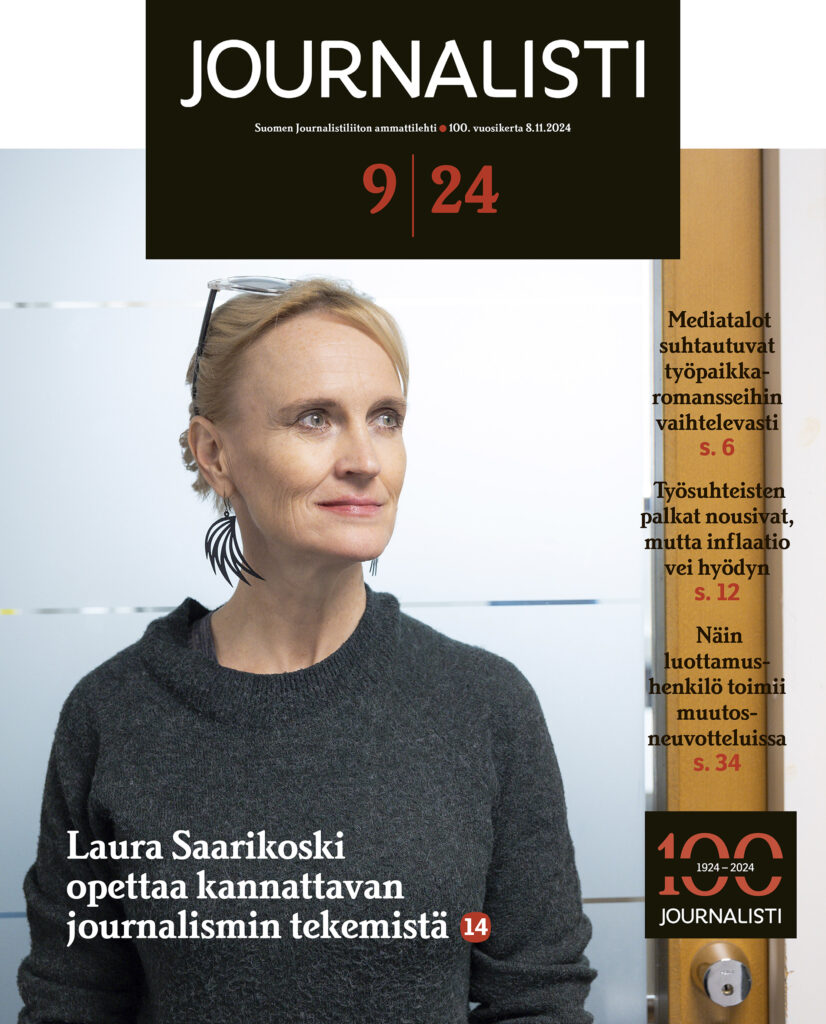My journalistic journey spans two languages, closely observing and contributing to the media landscapes in both Finland and Iraqi Kurdistan.
The media landscapes in the Kurdish and Finnish languages are markedly different, illustrating broad and visible differences in almost all areas, from working methods to compliance with ethical principles. In Finland, journalism is approached with comprehensive attention to detail. Conversely, Kurdish-language media prioritize content above all.
In the realm of Kurdish-language media, there is a significantly higher number of outlets. Currently, only a few newspapers report breaking news regularly. However, the dynamic is vastly different in the realm of television, where many 24/7 mainstream channels cover breaking news from around the world.
There are dozens of different TV channels, possibly even up to 400, of these channels. In contrast, Finland boasts a vibrant landscape of local and membership magazines, a feature that is notably scarce in Kurdistan.
In Kurdish media, particularly among the larger outlets, the landscape is deeply intertwined with efforts to shape public opinion and promote political agendas.
These entities are not merely platforms for news and information but are strategically aligned with political influencers. Misinformation is not random. This alignment underscores a media environment where the distinction between journalism and political advocacy is often blurred.
Twenty years ago, I began my writing journey with Kurdish publications as a volunteer and freelancer. Quickly, the digital world of publishing became a part of my life. Currently, I have joined forces with several other journalists to produce online TV programs in Kurdish.
Moving to Finland at a very young age, my fluency in Finnish enabled me to host radio programs on Helsinki’s local radio stations and write for various publications, for example for the Free Thinker magazine. This enriched my journalistic experience in Finland, broadening my perspective and skill set in the field.
Iraq and Kurdistan rank among the world’s most dangerous places for journalists, where numerous reporters have lost their lives, and many have been imprisoned for their journalistic endeavors. The Bahdinan (a region in Kurdistan) case, involving the arrest of five journalists on espionage charges, has garnered international scrutiny.
Before their trial, the Kurdistan Regional Government’s prime minister prematurely labeled them as spies. These journalists were subsequently handed severe prison sentences, with some still detained.
In Kurdish media, journalistic principles are often poorly adhered to, with notable lapses including personal attacks without giving the individual a chance to respond, inadequate requests for filming permission, and a lack of fact-checking and source criticism.
A particularly disturbing issue for me is the complete disregard for privacy: for instance, victims’ photos are published in the aftermath of accidents, with headlines such as “photos of the deceased in the accident” not sparing even children. The media rush to attract as many viewers as possible, report the news with utmost speed, and disseminate political messages effectively has overshadowed adherence to journalistic ethics.
I have worked for several years at a local radio station in Helsinki, producing programs in Kurdish and Finnish, where I have had the opportunity to interview a minister, MEPs, and others in high positions. In contrast, in Iraq, it is exceedingly difficult for me and many other journalists to secure interviews with politicians, especially those in power.
This situation has led to the media in Iraq and Kurdistan being vulnerable to misinformation and disinformation. The media and journalists are currently facing both internal and external challenges. On the one hand, within the media, there is a weakness in terms of lacking journalistic skills and principles. On the other hand, outside, there is political pressure and a lack of freedom of speech.
These factors affect both local and foreign journalists, potentially deterring those seeking to assess the country’s situation. For Middle Eastern immigrants or Finnish journalists covering areas like Iraq, understanding these dynamics is essential. It underscores the importance of conducting thorough research and collaborating with Iraqi journalists to effectively navigate the reporting complexities in these regions.
Despite my years of experience, my journey within Finnish journalism feels like it’s just beginning, with the promise of deeper insights and richer observations to unfold in the years ahead. Hopefully.
Journalisti is publishing articles by international students from Haaga-Helia to mark the 100th anniversary of Journalisti.

Uusimmassa lehdessä
- Työelämäprofessori Laura Saarikoski haluaa opettaa kannattavan journalismin tekemistä. Opiskelijoita kiinnostaisi enemmän se, miten jaksaa työelämää.
- Luottamushenkilön on oltava diplomaatti, sanoo A-lehtien Elisa Miinin
- Haastattelun ja taustakeskustelun raja on selvä vain periaatteena

